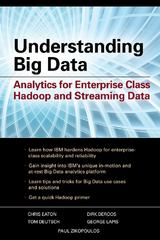Question
Implement this hash dictionary #ifndef __HASH_H #define __HASH_H #include #include #include using namespace std; /* private: void rehash(); int hash_function(KEYTYPE key); public: bool insert(KEYTYPE key,
Implement this hash dictionary
#ifndef __HASH_H #define __HASH_H
#include
using namespace std; /* private: void rehash(); int hash_function(KEYTYPE key); public: bool insert(KEYTYPE key, VALTYPE val); bool contains(KEYTYPE key); int remove(KEYTYPE key); VALTYPE* find(KEYTYPE key); int size(); // Elements currently in table bool empty(); // Is the hash empty? float load_factor(); // Return current load factor void clear(); // Empty out the table int bucket_count(); // Total number of buckets in table */
template
/** * Rehash the table into a larger table when the load factor is too large */ void rehash() {
}
/** * Function that takes the key (a string or int) and returns the hash key * This function needs to be implemented for several types it could be used with! */ int hash_function(int key) { cout << " Hashing with int type keys." << endl; }
int hash_function(string key) { cout << " Hashing with string type keys." << endl; }
public: /** * Basic constructor */ Hashtable( int startingSize = 101 ) {
}
/** * Add an element to the hash table */ bool insert(KEYTYPE key, VALTYPE val) { // Currently unimplemented }
/** * Return whether a given key is present in the hash table */ bool contains(KEYTYPE key) { return false; }
/** * Completely remove key from hash table * Returns number of elements removed */ int remove(KEYTYPE key) { // Doesn't actually remove anything yet }
/** * Searches the hash and returns a pointer * Pointer to Word if found, or nullptr if nothing matches */ VALTYPE* find(KEYTYPE key) { return nullptr; }
/** * Return current number of elements in hash table */ int size() { return(-1); }
/** * Return true if hash table is empty, false otherwise */ bool empty() { return(false); }
/** * Calculates the current load factor for the hash */ float load_factor() { //return _hash.load_factor(); return (-1.0); }
/** * Returns current number of buckets (elements in vector) */ int bucket_count() { return (-1); }
/** * Deletes all elements in the hash */ void clear() { // Does nothing yet }
};
#endif
Step by Step Solution
There are 3 Steps involved in it
Step: 1

Get Instant Access to Expert-Tailored Solutions
See step-by-step solutions with expert insights and AI powered tools for academic success
Step: 2

Step: 3

Ace Your Homework with AI
Get the answers you need in no time with our AI-driven, step-by-step assistance
Get Started


